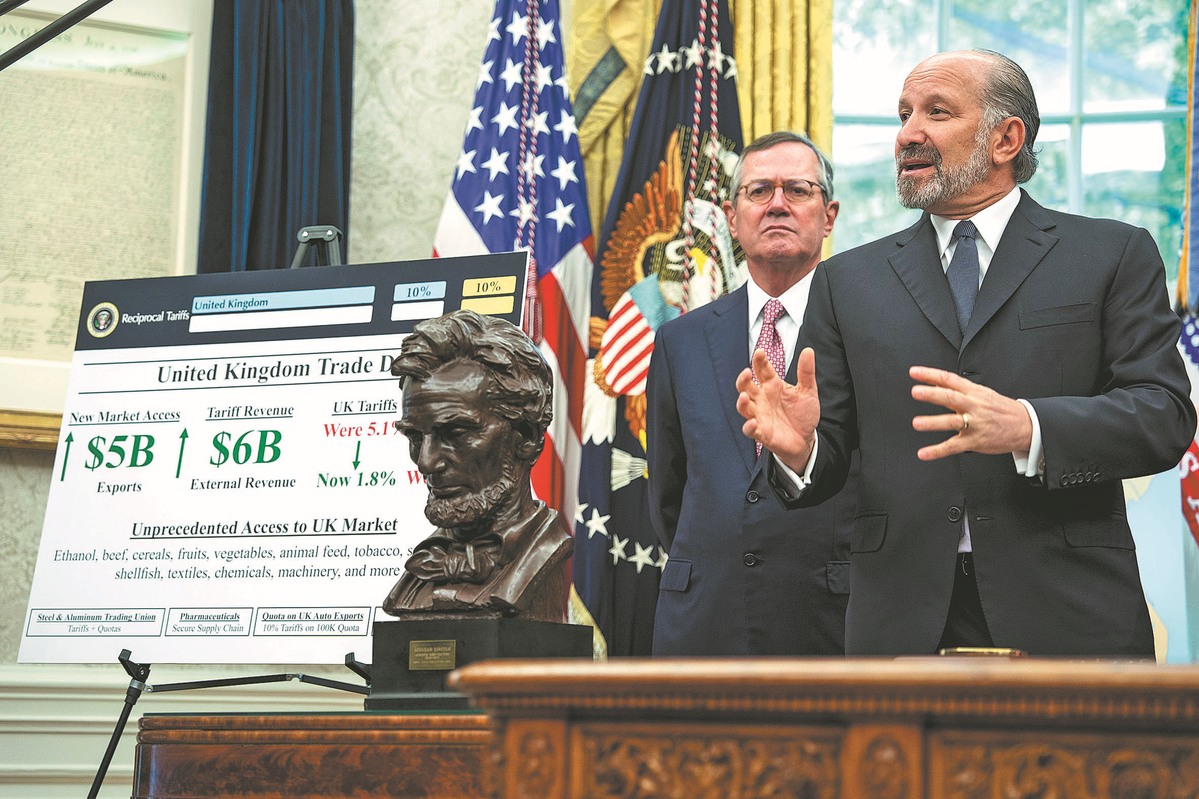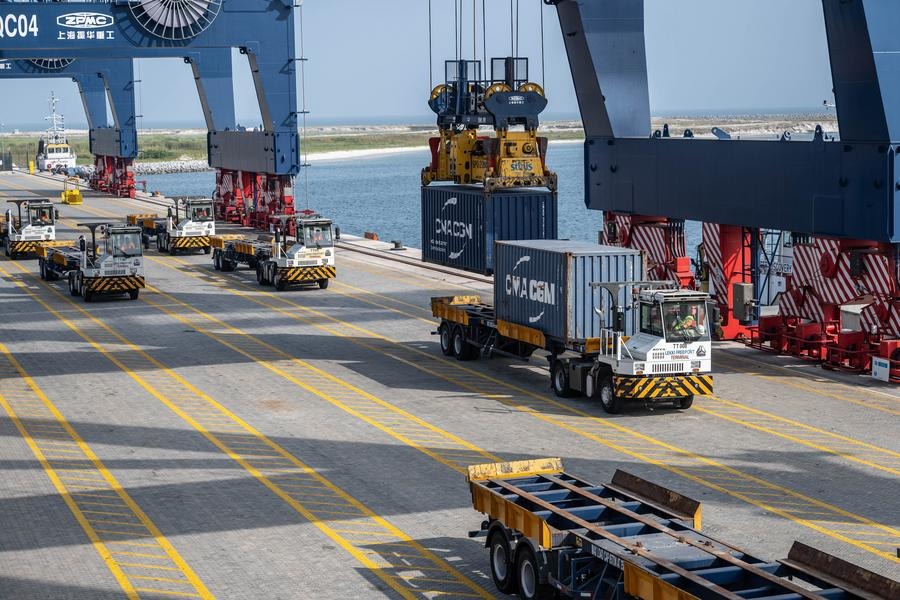Benefits of UK-US trade deal queried


Politicians, bankers, and experts have voiced concerns about the United Kingdom's new trade deal with the United States, noting most British products now face higher tariffs than they did a month ago, in spite of the agreement.
Bank of England Governor Andrew Bailey said the deal was a "good thing" but noted it will not fully mitigate tariffs unveiled by US President Donald Trump.
"It's good news. I have to say it's good news. In a world where it will leave the effective tariff rate higher than it was before all of this started, I do think we need to bear that in mind," Bailey said during a question and answer session at an economics conference in Reykjavik, Iceland.
Previously, the Bank of England, which is the UK's central bank, has warned Trump's initial set of tariffs would shrink the UK economy by 0.3 percent over three years. Most of the damage would have come from a reduction in demand for UK products from US consumers but around one third was attributable to a slowing world economy damaged by tariffs imposed on other nations.
Bailey noted the UK economy will still slow, regardless of the UK-US trade deal, because of the impact of tariffs on the global economy.
"The impact of all these developments on the trade front, on the UK outlook, is conditional, therefore, not only on the UK trade agreement but also what the rest of the world agrees as well," Bailey said.
The trade deal, which calls for tariffs to be slashed on UK exports of cars, steel, and aluminum from the previous 27.5 percent and 25 percent, means most UK exports will now be subject to Trump's baseline 10 percent tariff, but that still means the UK is facing higher tariffs than was the case before Trump came to power.
Bailey urged the UK to ensure it exports as much as possible to the European Union, and he said nations should try to preserve global open-trading systems.
Tina McKenzie, policy chair at UK's Federation of Small Businesses, told Financial Times: "We welcome the fact that an initial US-UK economic agreement has been achieved, which is significant in and of itself.
"But with broad 10 percent tariffs likely remaining in place, we need to see what's in the plan to boost SME (small and medium-sized enterprises) trade — and that remains unclear."
Kemi Badenoch, the leader of the UK's opposition Conservative Party, told LBC radio that the deal leaves the UK in a "worse position" than it was in earlier this year.
"We shouldn't congratulate ourselves because things are slightly less painful than before," she said. "I don't have a problem with the prime minister trying to fix things. What I do have a problem with is him trying to pretend a little thing is a big historic deal."
Badenoch said the "little tariff deal" goes some way toward fixing "what Donald Trump imposed on us last month".
"Two months ago, we had tariffs from the US that were about 2 to 3 percent. They are now 10 percent," she added.
Ben Caswell, a senior economist for the National Institute of Economic and Social Research, said the deal was clearly a "political win for the government" but that its impact on GDP would "be very small".
Economist Joseph Stiglitz, a professor at Columbia University and recipient of the Nobel Memorial Prize in Economic Sciences, told Sky News he thought it was not a "great achievement".
"Any agreement with Trump isn't worth the paper it's written on," he said. "I would view it as playing into Trump's strategy. His strategy is divide and conquer, go after the weakest countries, and sort of put the stronger countries in the back."

































